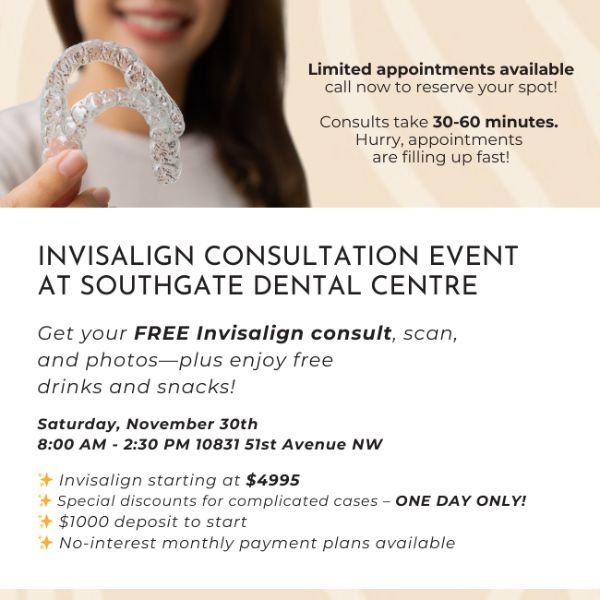Your mouth offers a unique glimpse into your general well-being. Many health conditions can show signs inside your mouth, which means a routine dental exam can help spot potential issues early. When you visit your dentist, they see more than just your teeth & gums.
From your diet to your stress levels, your mouth tells a detailed story about your life and habits. Your oral health is a reflection of your overall health, and understanding what happens during a dental appointment can show you just how detailed this process is. Your comfort and satisfaction matter, so a dental team looks at the complete picture to help you maintain your health.
Your Oral Hygiene & Diet
Your daily habits leave clear clues for a dental professional to see. From how you brush to the foods you eat, your choices have a visible effect on your oral health. These signs can help your dentist provide personalized advice.
How You Floss Or Don’t
A dentist can tell if you floss regularly, it’s not something you can fake just before a visit. Without proper flossing and brushing techniques, a dentist may notice signs like:
- Red or puffy gums
- Bleeding during your professional cleaning
- Inflamed gum tissue between the teeth
Your Diet’s Impact On Teeth & Gums
What you eat and drink directly affects your teeth and gums. A diet high in certain foods and beverages can contribute to specific oral health concerns. For example, sugary foods can feed the bacteria that cause tooth decay, while acidic drinks may lead to enamel erosion.
Your Dominant Hand
Your dentist may even be able to tell if you’re right- or left-handed!
People sometimes miss spots when they brush, and it often follows a pattern. Right-handed people may not brush the upper-right side of their mouth as thoroughly as the left, and the opposite can be true for left-handed people.
Try switching up your “typical” teeth brushing pattern. By changing up your routine, it can help ensure you aren’t skipping certain spots without even realizing it.
The Connection Between Oral & Overall Health
The link between oral and overall health is well-established, allowing your mouth to show signs of other conditions. This makes regular checkups with your dentist an important part of a complete health routine. Your dental team can partner with you in monitoring your health.
Signs Of Diabetes
Changes in your oral health may be related to diabetes. A dentist may notice symptoms such as:
- Inflamed, swollen, or tender gums
- Increased gum sensitivity or bleeding
- A “fruity” smell on the breath
Vitamin & Mineral Deficiencies
A lack of certain nutrients can appear in your mouth. Signs of a deficiency can include sores, changes in your tongue’s appearance, or a persistently dry mouth.
Pale gums, for example, may be a sign of an iron deficiency, which is why a healthy diet is good for life and your smile.
Clues About Kidney Or Liver Health
Certain oral signs may point to issues with other organs in your body. For instance, a persistent “fishy” odour on the breath could relate to how your kidney or liver is functioning. This is different from typical bad breath from food or plaque.
Autoimmune Disease Markers
Some autoimmune conditions can have oral signs that a dentist might notice. These can appear as red or white spots inside your mouth. You might also experience tender areas or mouth ulcers that are slow to heal.

Lifestyle Clues Your Mouth Can Show
Your lifestyle habits, from your stress levels to what you consume, can leave a mark on your teeth and gums. A dental examination can often spot these signs, helping you connect your habits to your oral health.
Stress & Sleep Issues
Stress or anxiety can cause some people to clench or grind their teeth, a habit called bruxism. This can cause noticeable wear on the biting surfaces of your teeth. Redness in the back of the throat or inflamed gum tissue might also be associated with conditions like sleep apnea or TMJ disorder.
Tobacco & Alcohol Use
Lifestyle choices like smoking or using other tobacco products can stain teeth and affect your gums. Alcohol use can lead to a dry mouth, which makes you more prone to cavities. It may also cause inflamed or sensitive gums.
Physical Habits & Their Dental Impact
Certain repetitive actions can alter the structure of your teeth and jaw over time. A dentist is trained to recognize the patterns these habits can leave behind. This allows them to suggest ways to protect your smile.
Nail Bite & Thumb Suck Effects
Habits like biting your nails or chewing on pen caps can cause chipping and wear on your front teeth.
A past thumb-sucking habit can change the alignment of teeth and the jaw. This can sometimes lead to an open bite, where the front teeth don’t meet when you close your mouth.
Signs of Gastrointestinal Problems
Stomach issues like acid reflux can cause enamel erosion, particularly on the tongue-side of your teeth. This happens when stomach acid comes into contact with your teeth. Persistent bad breath that doesn’t go away with brushing can also be a sign of a gastrointestinal issue.
How Health Changes Appear In Your Mouth
Different life stages and health conditions can present unique oral signs. A thorough oral exam helps your dental team monitor for these changes. This is part of providing you with comprehensive care.
Oral Signs During Pregnancy
Hormonal changes during pregnancy can affect your oral health. Some women develop “pregnancy gingivitis,” which is a form of gum inflammation caused by an increase in certain hormones. A benign red lump, called a pregnancy tumour, can also sometimes appear on the gums and usually goes away after delivery.
The Mouth & Bone Health
A dental X-ray can reveal information about your bone density. Changes in the bone that supports your teeth may be related to conditions like osteoporosis. Your jawbone health is an important part of your overall oral health.
How HIV Can Affect The Mouth
Certain oral conditions can be associated with HIV. These might include specific types of lesions inside the mouth or on the tongue. Other signs can include chronic dry mouth, canker sores, or white patches on the side of the tongue.
Oral Cancer Screen Checks
During a dental checkup, your dentist also looks for signs of oral cancer. This includes a careful check of your entire mouth for any unexplained sores or lumps. They also look for red or white patches that don’t go away.
Visit Southgate Dental Centre for Comprehensive Care
Your oral health is closely tied to your overall health, and routine examinations are more than just a cleaning. An appointment with a dentist in South Edmonton can help you understand the big picture of your well-being.
The team at Southgate Dental Centre is here to support you with gentle and comprehensive care. Request an appointment today to see what your oral health says about you.



